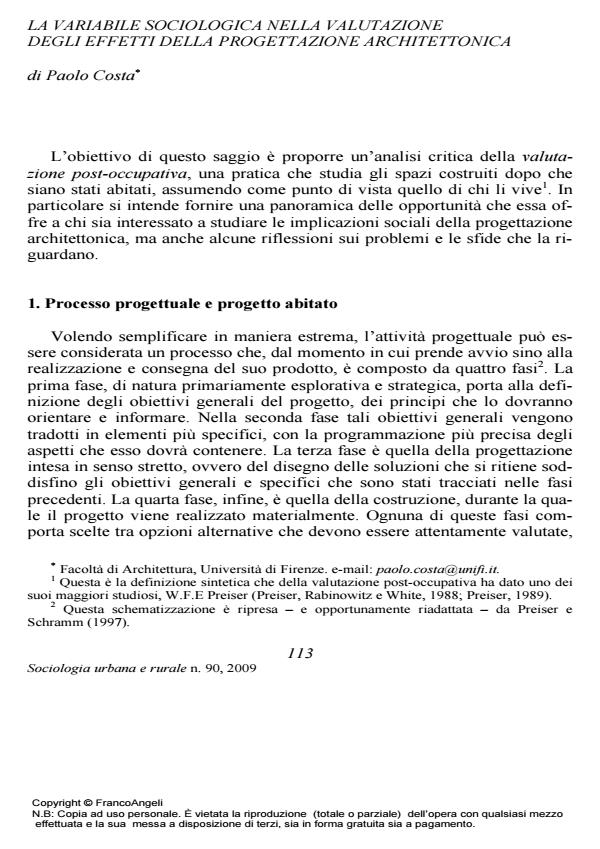The sociological dimension in the evaluation of architectural design
Journal title SOCIOLOGIA URBANA E RURALE
Author/s Paolo Costa
Publishing Year 2010 Issue 2009/90 Language Italian
Pages 15 P. 113-127 File size 407 KB
DOI 10.3280/SUR2009-090007
DOI is like a bar code for intellectual property: to have more infomation
click here
Below, you can see the article first page
If you want to buy this article in PDF format, you can do it, following the instructions to buy download credits

FrancoAngeli is member of Publishers International Linking Association, Inc (PILA), a not-for-profit association which run the CrossRef service enabling links to and from online scholarly content.
Post-Occupancy Evaluation (POE) is a practice that analyzes built environment after it has been occupied by its users and studies the gap between the initial architectural design goals and how the environment is adopted by those users. The first section of the article depicts the history of this practice, its main stages and the diverse conclusions that can be gleaned. The second section of the article is a critical analysis of the approaches used in the most recent evaluations. This analysis demonstrates a growing tendency to emphasize technological and functional dimensions of architectural design rather than sociological ones.
Keywords: Post-occupancy Evaluation, POE, Architectural design, Built environment, urban sociology.
Paolo Costa, La variabile sociologica nella valutazione degli effetti della progettazione architettonica in "SOCIOLOGIA URBANA E RURALE" 90/2009, pp 113-127, DOI: 10.3280/SUR2009-090007